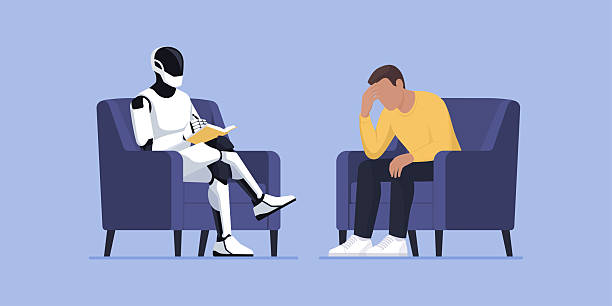Introduction
Ever asked:
- “Can AI actually help in private practice therapy?”
- “How do therapists use artificial intelligence with
- out losing the human touch?”
- “What are the safest and most practical ways to use AI in a HIPAA-compliant setting?”
In 2025, AI isn’t just for big tech firms it’s transforming solo and group mental health practices. From documentation and scheduling to personalized content and client engagement, therapists can now automate routine tasks and focus more on care.
This guide explores the best AI applications that therapists and psychologists are adopting today — with practical examples and voice search–friendly implementation tips.
1. AI-Powered Intake Forms and Pre-Session Screening
Many therapists now use smart forms to automate the intake process.
✅ Benefits:
- Pre-fill basic demographic data
- Use adaptive questions based on client input
- Summarize key issues before the first session
🔐 Ensure platforms are HIPAA-compliant.
📌 Learn more: HIPAA-Compliant Tech for LMFTs
2. Smart EHR Tools That Save Time
Modern EHR systems now use AI to:
- Autogenerate SOAP notes
- Flag compliance risks
- Suggest treatment updates based on client history
Result: You spend less time on paperwork, more time on clients.
📌 Explore tools: How EHRs Help Mental Health Professionals Reduce Administrative Burden
📌 Tech overview: Custom EHR for LMFTs
3. AI-Enhanced Scheduling & Reminders
Voice assistants like Google Assistant and AI-integrated scheduling apps (e.g., Jane, SimplePractice AI tools) now:
- Offer calendar syncing via voice
- Send predictive reminders based on session history
- Adjust availability automatically
📌 Automation tip: Teletherapy Website Features
4. AI-Powered Chatbots for Pre-Session Support
Therapists are adding chatbots to their websites that can:
- Greet visitors and answer basic questions
- Collect pre-appointment data
- Share crisis resources when appropriate
✅ Use them for:
- After-hours support
- New visitor FAQs
- Triaging inquiries without human delay
📌 Implementation guide: Build a HIPAA-Compliant Teletherapy Website
5. Personalized Mental Health Content Generation
Therapists can now use AI to:
- Generate weekly blog content
- Send email campaigns personalized by client needs
- Repurpose sessions (with consent) into educational material
✅ Voice search–ready examples:
- “What is EMDR and how does it work?”
- “Why does anxiety get worse at night?”
📌 Content support: Content Marketing for Psychologists
6. AI for Data-Driven Marketing
AI helps you:
- Identify high-performing keywords
- Predict which services will trend in your area
- Track visitor behavior for retargeting ads
With AI-assisted analytics, you can refine your website and ad spend weekly — without guessing.
📌 Explore solutions: Top Therapist Marketing Strategies for 2025
📌 Boost visibility: Digital Marketing for Psychologists
7. Ethical Considerations and Human Oversight
AI must never replace therapeutic judgment.
✅ What to avoid:
- Using AI to diagnose or treat
- Relying solely on chatbot conversations
- Storing client data in non-secure systems
Always blend AI tools with personal clinical oversight to ensure ethical and safe use.
📌 Compliance focus: Ensuring HIPAA Compliance in Teletherapy
Final Thoughts
AI isn’t the future — it’s already reshaping therapy practices in 2025.
Here’s how leading therapists use AI:
- ✅ Automating intake, notes, and scheduling
- ✅ Enhancing content creation and outreach
- ✅ Increasing voice search visibility and SEO
- ✅ Streamlining EHR workflows
- ✅ Maintaining ethical and HIPAA-compliant practices
At Mental Health IT Solutions, we help therapists adopt AI tools that save time, grow revenue, and keep care human-first.







